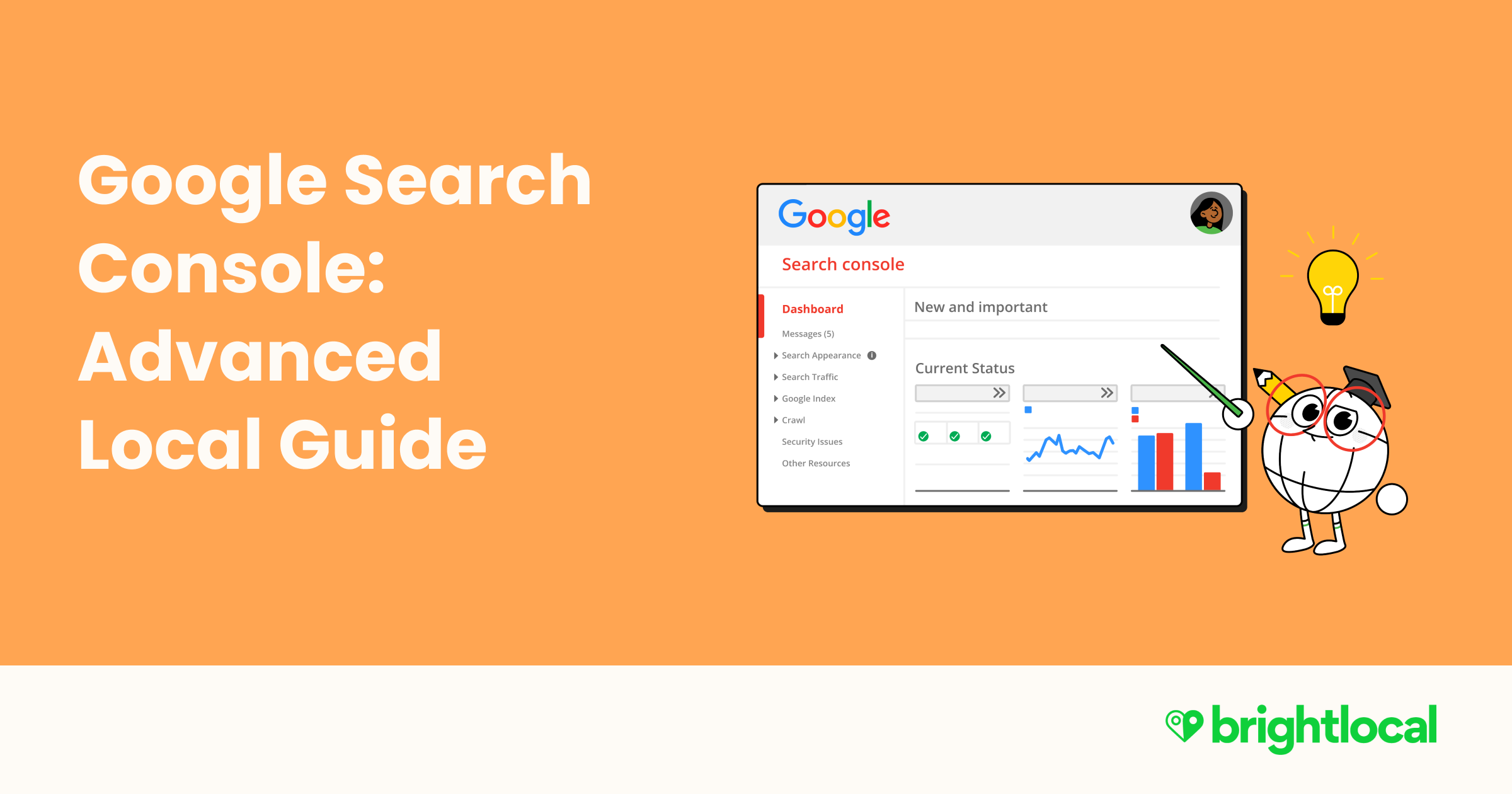So that you dove into Google Search Console (GSC) after studying “An Introduction to Google Search Console for Native Companies,” otherwise you took a glance underneath the hood and thought, “That’s simply method an excessive amount of search knowledge. How can I make sense of all of it?”
Don’t fear, you’re not alone. That was one of many causes I created a Looker Studio report to assist break down and visualize the info in easy-to-understand chunks.
The search knowledge in GSC might be overwhelming, particularly for a lot of enterprise house owners venturing into GSC for the primary time. However after following the steps in our first GSC submit, we are able to now present you find out how to take a barely deeper have a look at the search knowledge from a extra native perspective. (Not learn the primary submit however desperate to get superior with GSC? No drawback! Let’s dive in.)
On this information, I’ll present you how one can filter via the search knowledge in Google Search Console that will help you with:
- Understanding your customer’s native intent
- Utilizing GSC to create ‘Incessantly Requested Questions’ content material in your website
- Gathering concepts for Google Enterprise Profile posts
- Posting your individual GBP Q&A from questions requested by customers
- Utilizing the info to construct extra content material or develop on what the person could need to know extra about
- Monitoring your UTM tagging out of your GBP (Google Enterprise Profile)
Filtering the Search Knowledge Utilizing Regex
We’re largely going to make use of one thing known as ‘Common Expressions’ (or ‘regex’) to filter the search knowledge.
What’s regex?
Think about regex as a particular form of search device inside Search Console. It helps you to zoom in on particular patterns in your web site knowledge, serving to you uncover hidden insights about how folks discover your enterprise on-line.
Consider regex as a particular search language that you simply write to inform Search Console precisely what you’re searching for. It’s like giving it a set of clear directions to observe.
In regex, as a substitute of standard phrases, you utilize just a few particular symbols and characters to create these directions. It would look a bit unusual at first, nevertheless it’s not too arduous to study.
While you apply a regex sample, Search Console goes via your knowledge and solely exhibits you the elements that match your directions. It’s like filtering out the litter and zooming in on the necessary stuff.
For instance, if we need to discover all queries that include the phrase “native” or “close to me”, it might look one thing like this:
(?i)b(?:native|close to me)b
What does it imply?
(?i): Case-insensitive flag, making certain matches no matter capitalizationb: Phrase boundary, making certain the phrases are entire phrases, not elements of different phrases(?:...): Non-capturing group, grouping the phrases with out making a seize groupnative|close to me: Options inside the group, matching any of the desired phrasesb: One other phrase boundary to finish the phrase match
Instance Matches
If we seemed on the search console knowledge for an area restaurant we would see queries akin to:
- “discover native eating places”
- “restaurant close to me”
Observe:
- This regex finds any of the desired phrases as entire phrases wherever inside the question.
- It’s case-insensitive, so capitalization doesn’t matter.
- Phrase boundaries guarantee correct matching.
- The non-capturing group is used for effectivity and readability.
We’re going to use the instance above later on this submit however let’s begin with one thing somewhat simpler.
Let’s begin along with your native city/metropolis and state
It’s time to roll up your sleeves and dive into the search knowledge. We’ll begin straightforward after which enhance the complexity of our regex filters. We’ll begin by find out how to filter the outcomes simply to point out queries that include simply your city or metropolis.
The regex would seem like this:
(?i)b cityname b
Simply copy the above instance and exchange ‘cityname’ with the identify of your city or metropolis, however first, let me present you ways and the place we’re going so as to add it.
Log into your GSC dashboard, and underneath ‘Efficiency’ select ‘Search outcomes’.
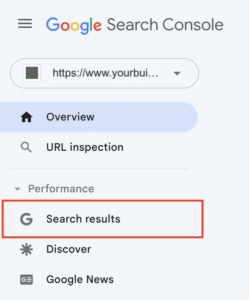
Now, above the principle desk of search knowledge, we’re going to edit the settings and apply our first filter.
Choose ‘+ New’ after which ‘Question…’

Choose ‘Customized (regex)’

We now need to copy the regex instance:
(?i)b cityname b
And paste it as follows:
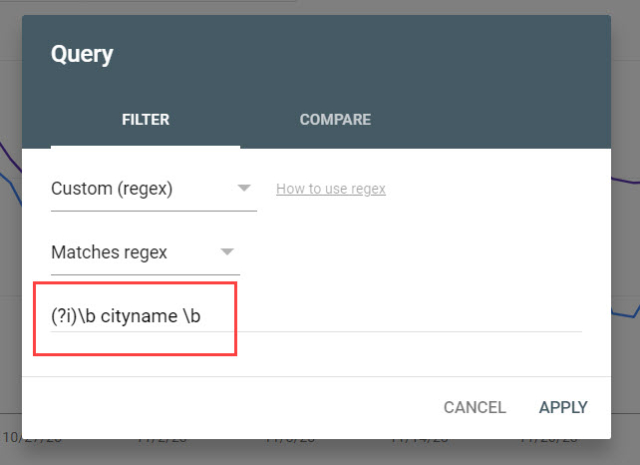
You should have changed cityname with the identify of your city or metropolis. Now simply click on “APPLY”.
Your ‘Queries’ desk ought to now solely include the highest queries containing the identify of your city/metropolis. Have a look at the search knowledge and see what your clients are looking for that features the identify of your city. It may be very revealing.
Effectively accomplished, you’ve accomplished your first filter utilizing regex! Now let’s construct on this.
We’re now going to filter the search knowledge by city/metropolis and state. For instance, my subsequent instance goes to make use of Atlanta, which is within the state of Georgia, which can even be written as ‘GA’.
My regex would look one thing like this:
(?i)b(?: atlanta|georgia|ga )b
Observe the usage of the pipe ( | ) – the OR operator. Utilizing because of this any of the three choices, ‘atlanta’, ‘georgia’, or ‘ga’, might be matched.
Now my search knowledge will record any question containing the phrases ‘Atlanta’, ‘Georgia’, or ‘GA’.
Native Intent
In our very first regex instance, we used this instance:
(?i)b(?:native|close to me)b
Now let’s develop on this just a bit and embrace a pair extra variations:
(?i)b(?: native|close by|close to me|finest in )b

Instance matches:
- “Discover native eating places”
- “Greatest pizza close by”
- “Grocery shops close to me”
- “Greatest espresso outlets in Atlanta”
Context issues. Analyze queries inside your particular business and site. Intent might be implicit or specific. Not all native queries include apparent location phrases.
Tip: Enhance the date vary from 3 months to a minimum of 12 months. It will enhance the quantity of question search knowledge you’re filtering and provide you with extra insights.


What questions are your customers asking?
Have you ever ever wished to know what questions your potential clients are asking to search out your services or products? Effectively, you are able to do so by utilizing the easy regex snippet beneath. Simply copy and paste the next, as now we have accomplished earlier than.
(?i)b( what|the place|when|why|do|who|how|can|which|will )b

Now you can use the outcomes out of your search knowledge in your web site and GBP to:
- Create Incessantly Requested Query (FAQ) content material in your website
- Uncover concepts for Google Enterprise Profile posts
- Publish your individual GBP Q&A from questions requested by customers
- Construct extra content material or develop on what the person could need to learn about
Tip: You may all the time simply trim down the regex and begin with the what, the place, when, and why.
(?i)b( what|the place|when|why )b
You may adapt any of those patterns to incorporate extra phrases past widespread query phrases. For instance:
Business Intent:
(?i)b( finest|high|vs|evaluation )b
Transactional Intent:
(?i)b( purchase|low-cost|value|buy|order )b
Query and Key phrase
What if I wished to know what questions had been being requested that contained a selected key phrase?
For instance, I’ve a private harm lawyer and I need to know what questions are being requested regarding vehicles.
The regex for this is able to be:
(?i)b( what|the place|when|why|do|who|how|can|which|will )b *b truck b
Instance Questions:
- what character traits do truck drivers have
- can truck drivers sleep on the aspect of the highway
- why truck accidents should not like automotive accidents
Simply change the phrase ‘truck’ for the service or product that pertains to your enterprise.
Firm Identify Monitoring
With this regex snippet, you possibly can achieve worthwhile insights into your organization’s on-line presence. By monitoring tendencies in model consciousness, figuring out top-performing pages, and even uncovering potential points, you need to use this data to enhance your content material, search engine marketing methods, and general model visibility.
Pinpoint your organization identify variations. Record all attainable methods folks may seek for your organization:
- Full firm identify, e.g. “Superb Merchandise Inc”
- Frequent abbreviations, e.g. “Superb Merchandise”
- Potential misspellings, e.g. “Superb Merchandise”
- Variations with modifiers, e.g. “Superb Merchandise evaluations,” “Superb Merchandise close to me”
(?i)(b Superb Merchandise Inc b|b Superb Merchandise b|b Superb Merchandise b|b Superb Merchandise close to me b)
Change placeholders along with your precise firm identify variations.
(?i)(b YOUR_COMPANY_NAME b|b ABBREVIATION b|b MISSPELLING b|b COMPANY_NAME modifier b)
Keep in mind to observe the outcomes and regulate the sample as wanted, based mostly in your particular wants and search tendencies.
UTM Tagging
If you happen to’ve been being native search engine marketing, you then’ve been utilizing UTM tagging inside your GBP for a few years now, for the whole lot out of your web site hyperlinks to GBP posts. If you happen to haven’t, then learn Claire’s information on UTM Tagging for Google Enterprise Profiles and repair that instantly!
You may see your UTM knowledge fairly simply inside your GSC search knowledge. Nevertheless, as a result of UTMs are related to the web page URL, now we have to use the regex to ‘Web page…’ and never ‘Question…’.
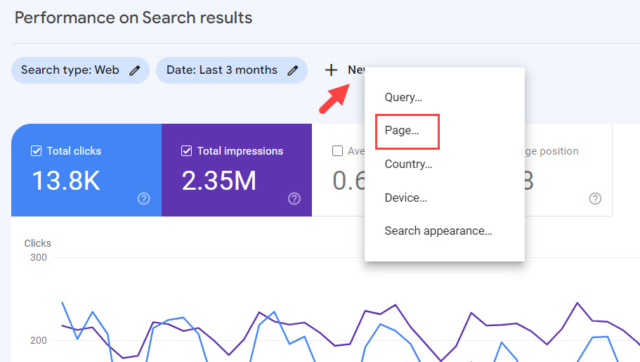

…and paste, as earlier than:

?(?:utm_source|utm_medium|utm_campaign|utm_term|utm_content)=[^&]+
Then, change between the ‘Pages’ tab to see the highest pages which are performing, after which change to the ‘Queries’ tab to see which queries are producing clicks out of your GBP.
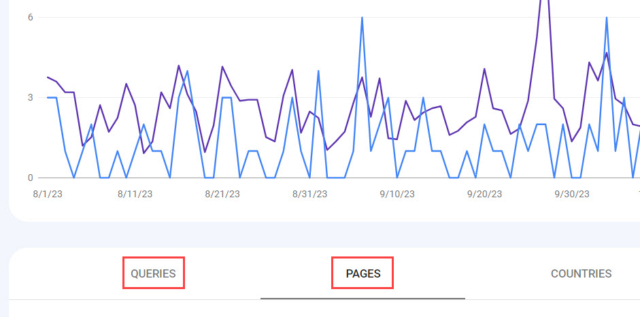
Tip: GSC and primary exports are restricted to displaying a most of 1,000 rows of information per report (property). This may be irritating, particularly for giant web sites or particular eventualities the place you want to analyze extra knowledge factors.
A workaround to get extra knowledge is to create extra properties for a similar web site. Within the instance beneath, I’ve created six properties for various sections of the positioning. This fashion we’ll get 1,000 rows of information for every property and never simply 1,000 rows for the entire area. Verification is straightforward as soon as the principle area has been verified.

Conclusion
For native companies, mastering regex can unlock a hidden vault of Google search knowledge about your clients. However like all highly effective device, precision and ongoing changes are key to maintaining with evolving advertising targets and staying forward of the sport.
I hope these regex examples show worthwhile. Ought to you have got any questions, please attain out to me on X (previously Twitter).

